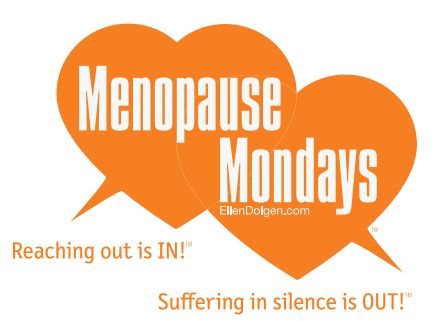
It's that time of year again: time for us to select our health insurance policy for the following year. But this year, thanks to the Affordable Care Act (ACA), things are a little (OK, make that a lot) different.
Currently in the United States, nearly one in five women ages 18 to 64 are uninsured, according to the Office on Women's Health. Meanwhile, those who are insured consistently pay higher health insurance premiums than men, according to the National Women's Law Center -- and often without the coverage they need. What's more, women are twice as likely as men to be insured through a spouse's plan, meaning they risk losing coverage if their spouses lose their job, they get divorced, or their husbands die.

"It's apparent that something has been seriously amiss with women's healthcare in America," says Vista Health Solutions editor Michael Cahill, "The Affordable Care Act has the potential to reshape the landscape of women's healthcare starting in 2014."
Here are three groundbreaking ways the Affordable Care Act will change your healthcare in the coming year:
You Won't Pay More Because You're a Woman
For years, you have been paying higher premiums for one simple reason: You're a woman. In most states, insurers have traditionally been allowed to consider gender when setting policy rates. In 2009, 95 percent of the best-selling plans in state capitals practiced gender rating, according to one report, Still Nowhere to Turn: Insurance Companies Treat Women Like a Pre-Existing Condition. As a result, women are often charged more than men for the exact same coverage. For example, the report found that, in 2009, a 25-year-old woman could be charged up to 84 percent more than a 25-year-old man for the exact same individual policy (that means no maternity coverage). Fortunately, gender rating on individual policies as well on small group plans (50-100 employees) is banned under the ACA, according to Cahill. "While this is not a complete stop to this practice, it is certainly a start," he says.
You'll Receive a Wider Range of Coverage
"The ACA's essential health benefits serve to bring all health insurance plans up to a new standard of coverage. The idea is this: There are ten different categories of medical benefits that every new health plan has to cover in some capacity," Cahill says. These include outpatient care, emergency-room visits, inpatient care, pre- and post-natal care, mental health treatment, prescription drugs, recovery services, lab tests, pediatric services, and preventative services. "While specific healthcare benefits may vary by state and even within the same state, one category that does have some specific services mandated is preventative care," he says. For women this includes annual well-woman visits, routine mammograms, cervical cancer screenings, contraceptive methods, breastfeeding equipment, and more. It seems logical to include all of these areas, right? But before the ACA was enacted into law, insurance companies were able to exclude any and all of these from coverage. In fact, according to one 2009 report, that year, only 13 percent of health plans available to 30-year-old women provided maternity coverage. Check out HRSA.gov for a full list of women's preventative services.
Your Past Won't Prohibit Future Care
Who hasn't been sick or injured in the past? Come on, that's why we get health insurance, right? While insurers have traditionally been able to refuse to cover any costs associated with care for a pre-existing condition permanently or over a period of time, that ends with the ACA, Cahill says. For women this means that past cases of breast cancer, uterine fibroids, cesarean sections, domestic abuse, as well as current pregnancies won't stand between you and getting the continuing care you need. That's right, until now, health insurance companies could refuse to sell healthcare insurance to pregnant women, and in a recent CNN article, one woman shared how an insurance company said that, due to her previous cesarean section, the company would not cover her unless she was first sterilized. It's astonishing these sorts of practices were allowed for so long.
"All of these things coalesce into a notably better healthcare situation for women," Cahill says. "Many women won't have to worry about being charged a higher premium than a man, and every woman can benefit from the services provided by the essential health benefits." So, ladies, when you are filling out your healthcare forms this year, focus on your health needs and the new opportunities to have them covered. This year women nationwide are able to secure the healthcare, equality, and happiness they deserve!
Reaching out is IN! Suffering in silence is OUT!
Photo Courtesy of I stock photo
For more by Ellen Dolgen, click here.
For more on women's health, click here.
Ellen Dolgen is an outspoken women's health and wellness advocate, menopause awareness expert, author, and speaker.
After struggling through the silence that surrounds menopause, Ellen resolved to help women reach out and end the confusion, embarrassment, and less-than-lovely symptoms that come with "the change." Her passion to be a "sister" to all women fueled Ellen's book, Shmirshky: the pursuit of hormone happiness. As a result of her women's wellness journey, and in response to the overwhelming thirst of her ever-expanding audience for empowering information, Ellen's weekly blog, Menopause Mondays was born.
Menopause Mondays allows Ellen an expansive platform from which she broadens her discussion of menopause, women's health, and life as a menopausal (and fabulous!) woman. Her weekly Menopause News Flash provides a one-stop shop for the latest menopause and women's health news and research, allowing women the access and know-how needed to take charge of their health and happiness. In addition to Ellen's ever-growing social media presence, EllenDolgen.com has fast become "the place" on the web for informative and entertaining women's menopause and wellness engagement. Ellen is #1 on Dr. Oz Sharecare.com Top 10 Social HealthMakers on Menopause. In 2012 and 2013 EllenDolgen.com was named first on the list of the "Best Menopause Blogs" by Healthline. Ellen is also a regular contributor to over a dozen leading women's health blogs. Her motto is: Reaching out is IN! Suffering in silence is OUT!
Ellen has appeared on the "TODAY Show," "NBC Nightly News", the "Rachael Ray Show," "The Doctors," Oprah Radio, Playboy Radio, NPR's "Tell Me More," Doctor Radio, and dozens of regional and national media outlets. In 2011 she appeared in a sold-out, San Diego production of "The Vagina Monologues." Ellen was one of the first regular contributors to debut on The Huffington Post's, Huff/Post50, which targets 116 million Americans over the age of 50.
Like Ellen Dolgen on Facebook, follow her on Twitter and Pinterest, connect with her on LinkedIn, Google+, and Klout, watch her videos on YouTube, and subscribe to her newsletter.
Earlier on Huff/Post50:
